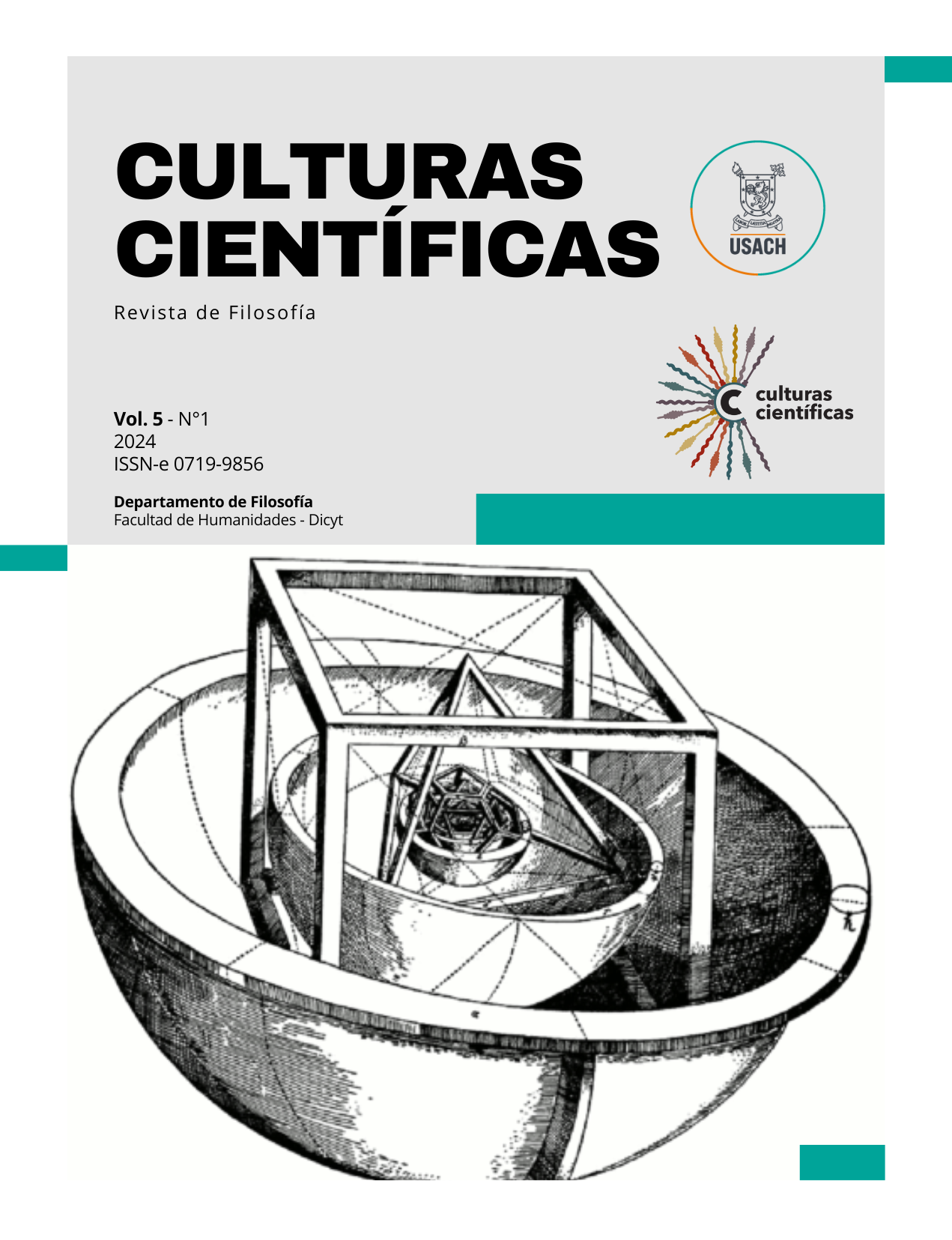Explanation and inferentialism
An anti-realist solution to the paradox of explanation
DOI:
https://doi.org/10.35588/cc.v5i1.6588Keywords:
Explanation's Paradox, inferentialism, explanation, economic models, paradoxAbstract
In this paper, I propose a possible anti-realist solution to the paradox of explanation. This proposal is in line with the instrumentalist position of Reiss (2012b, 2013) but goes further: a normative inferentialist position of explanation is proposed.
First, I will show some fundamental aspects of inferentialism in the context of explanation, and then, I will show how an inferentialist position regarding paradox of explanation reduces to accepting the following three propositions: 1. models are true in the sense of true explanations, 2. models explain, and 3. only true explanations explain. This expresses a solution to the paradox insofar as it is perfectly possible to accept each of the three propositions.
Downloads
References
Alexandrova, A., and Northcott, R. (2013). "It's just a feeling: why economic models do not explain." Journal of Economic Methodology 20.3: 262-267. https://doi.org/10.1080/1350178x.2013.828873
Brandom, R. (1994). Making it explicit: Reasoning, representing, and discursive commitment. Harvard University Press.
deVries, W. (2020). Wilfrid Sellars. In Zalta, E. N. and Nodelman, U., editors, The Stanford Encyclopedia of Philosophy. Metaphysics Research Lab, Stanford University, Fall 2020 edition. https://plato.stanford.edu/archives/fall2020/entries/sellars/
Friedman, M. (1953). Essays in positive economics. University of Chicago press.
Godfrey-Smith, P. (2009). Theory and reality: An introduction to the philosophy of science. University of Chicago Press.
Grüne-Yanoff, T. (2013). "Genuineness resolved: a reply to Reiss' purported paradox." Journal of Economic Methodology 20.3 : 255-261. https://doi.org/10.1080/1350178x.2013.828866
Hausman, D. M. (1992). Essays on philosophy and economic methodology. Cambridge University Press. https://doi.org/10.1017/cbo9781139173964
Hausman, D M. (2013). "Paradox postponed." Journal of Economic Methodology 20.3: 250-254. https://doi.org/10.1080/1350178x.2013.828868
Kuorikoski, J., Lehtinen, A., & Marchionni, C. (2010). Economic modelling as robustness analysis. The British Journal for the Philosophy of Science. https://doi.org/10.1093/bjps/axp049
Mäki, U. (2013). "On a paradox of truth, or how not to obscure the issue of whether explanatory models can be true." Journal of Economic Methodology 20.3: 268-279. https://doi.org/10.1080/1350178x.2013.828869
Putnam, H. (1982). “Why There Isn't a Ready-made World." Synthese, pp. 141-167. https://doi.org/10.1007/bf00413825
Reiss, J. (2012a). Causation in the sciences: An inferentialist account. Studies in History and Philosophy of Science Part C: Studies in istory and Philosophy of Biological and Biomedical Sciences, 43(4):769–777. https://doi.org/10.1016/j.shpsc.2012.05.005
Reiss, J. (2012b). The explanation paradox. Journal of Economic Methodology, 19(1):43–62. https://doi.org/10.1080/1350178x.2012.661069
Reiss, J. (2012c). Idealization and the aims of economics: three cheers for instrumentalism. Economics & Philosophy, 28(3):363–383. https://doi:10.1017/s0266267112000284
Reiss, J. (2013). "The explanation paradox redux." Journal of Economic Methodology 20.3 : 280-292. https://doi.org/10.1080/1350178x.2013.828874
Reiss, J. (2019). "Causal Explanation Is All There Is to Causation." Teorema: Revista Internacional de Filosofía 38.3: 25-52.
Rohwer, Y. and Rice, C. (2016). How are models and explanations related? Erkenntnis, 81:1127–1148. https://doi:10.1007/s10670-015-9788-0
Rol, M. (2013). "Reply to Julian Reiss." Journal of Economic Methodology 20.3: 244-249. https://doi.org/10.1080/1350178x.2013.828870
Salmon, W. C. (1984). Scientific explanation and the causal structure of the world. Princeton University Press. https://doi.org/10.1515/9780691221489
Sellars, W. (1956). "Empiricism and the Philosophy of Mind." Minnesota studies in the philosophy of science 1.19: 253-329.
Steinberger, F. & Murzi, J. (2017). Inferentialism. In Blackwell Companion to Philosophy of Language. Wiley Blackwell. pp. 197-224. https://doi.org/10.1002/9781118972090.ch9
Sugden, R. (2000). Credible worlds: the status of theoretical models in economics. Journal of economic methodology, 7(1), 1-31. https://doi.org/10.1017/cbo9780511819025.032
Sugden, R. (2013). "How fictional accounts can explain." Journal of Economic Methodology 20.3 : 237-243. https://doi.org/10.1080/1350178x.2013.828872
Van Riel, R. (2017). What is the Problem of Explanation and Modeling?’, Acta Analytica, 263-275. https://doi.org/10.1007/s12136-016-0307-y
Verreault-Julien, P. (2019). Understanding does not depend on (causal) explanation. European Journal for Philosophy of Science, 9(2):18. https://doi:10.1007/s13194-0180240-6.
Downloads
Submitted
2024-01-15Published
Versions
- 2024-12-27 (2)
- 2024-12-23 (1)
Issue
Section
License
Copyright (c) 2024 Felipe Núñez Michea

This work is licensed under a Creative Commons Attribution 4.0 International License.











